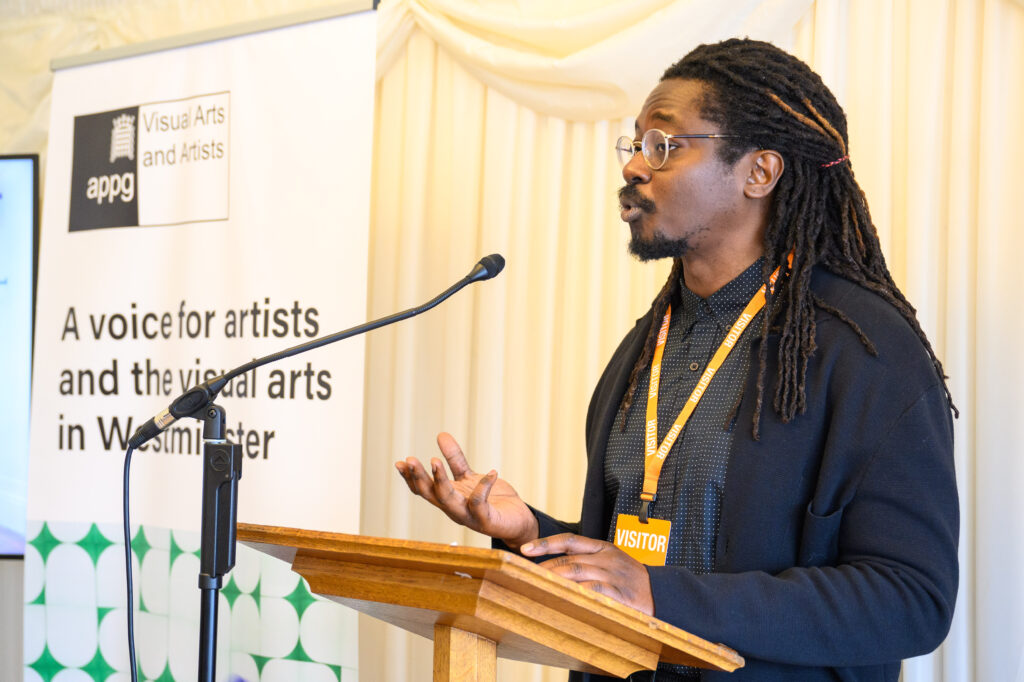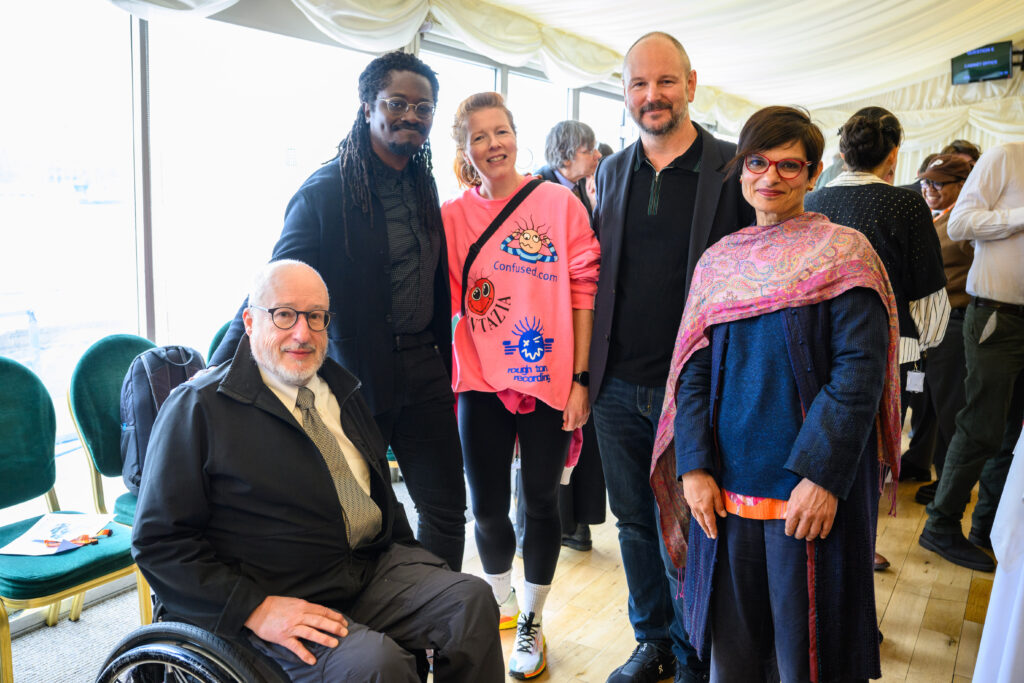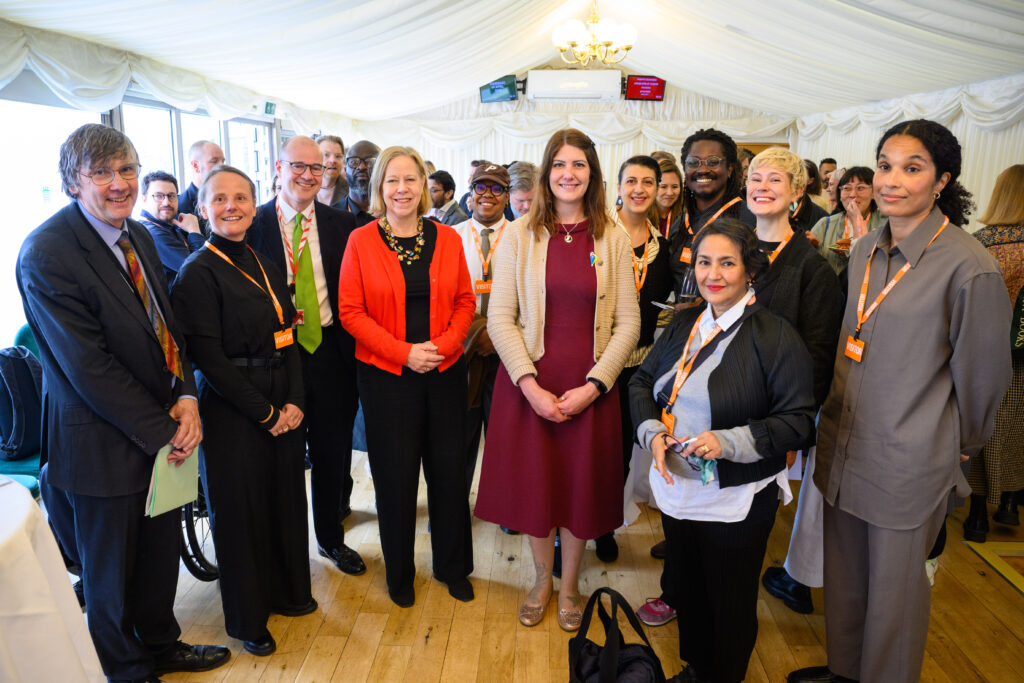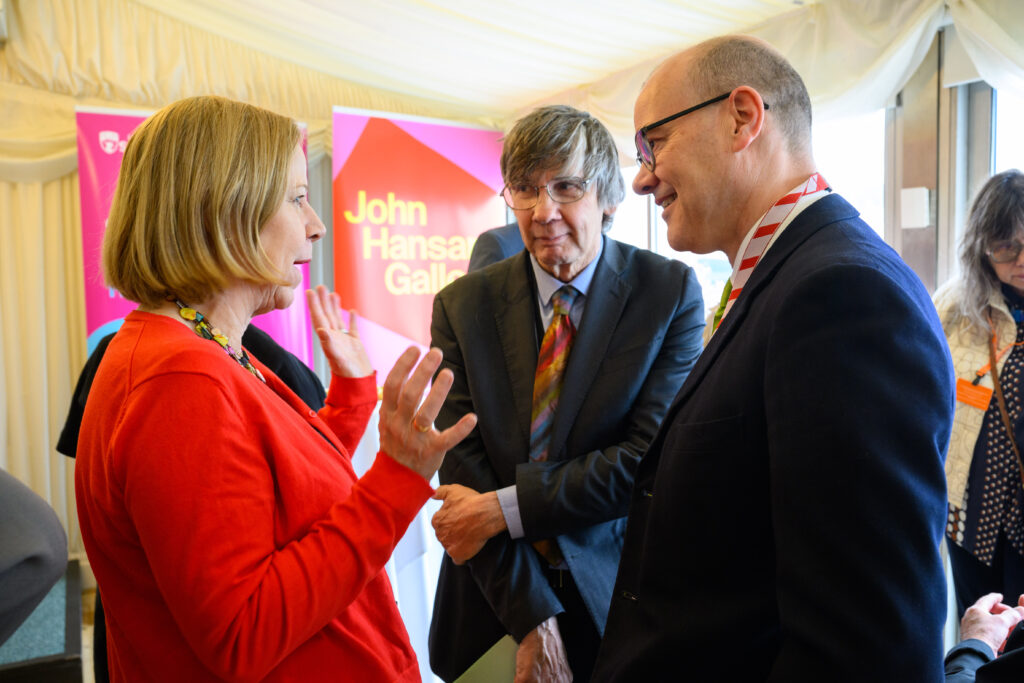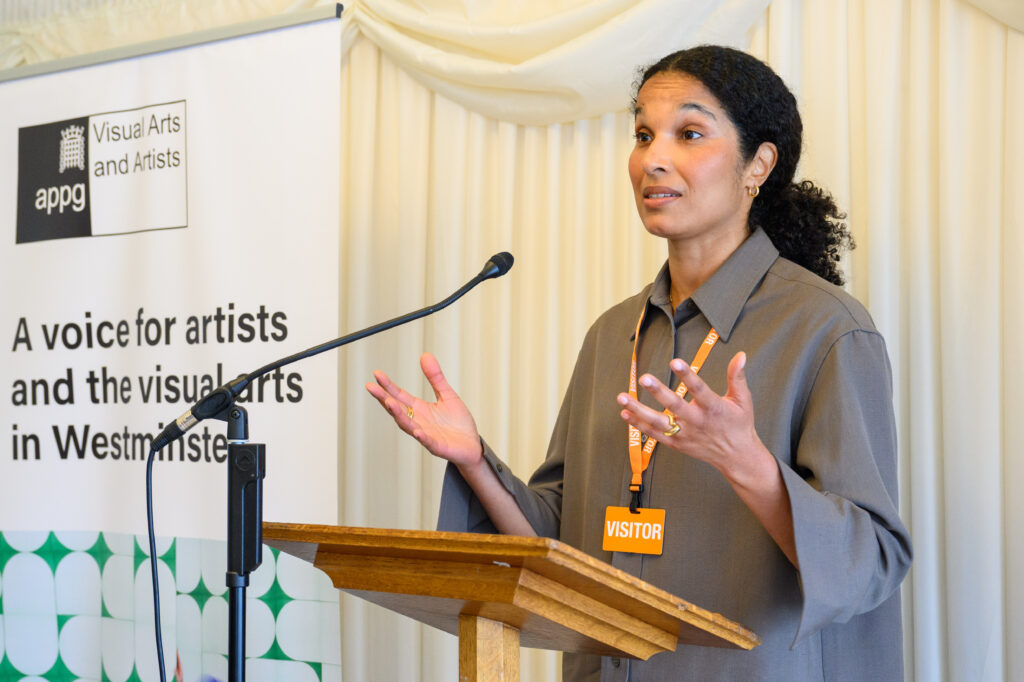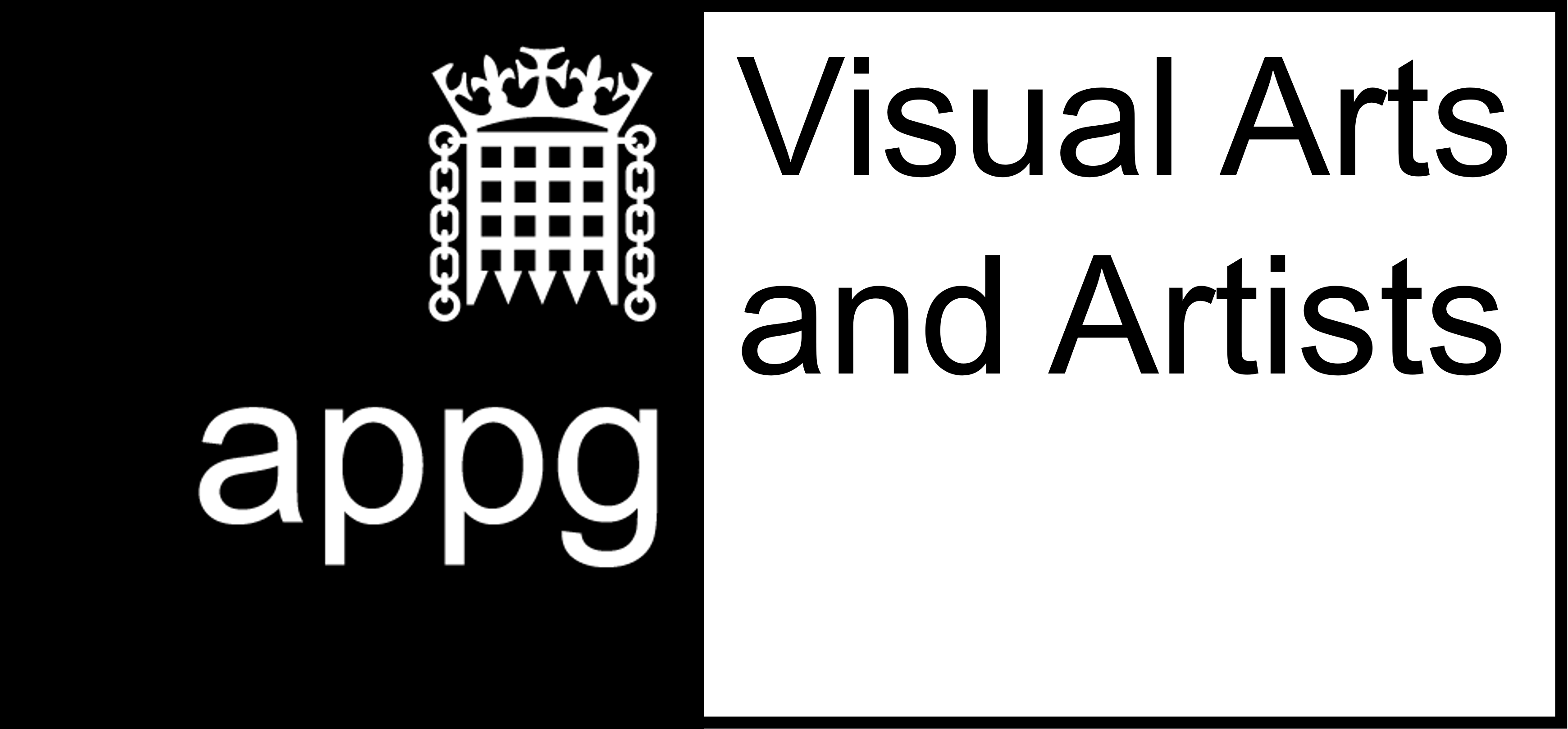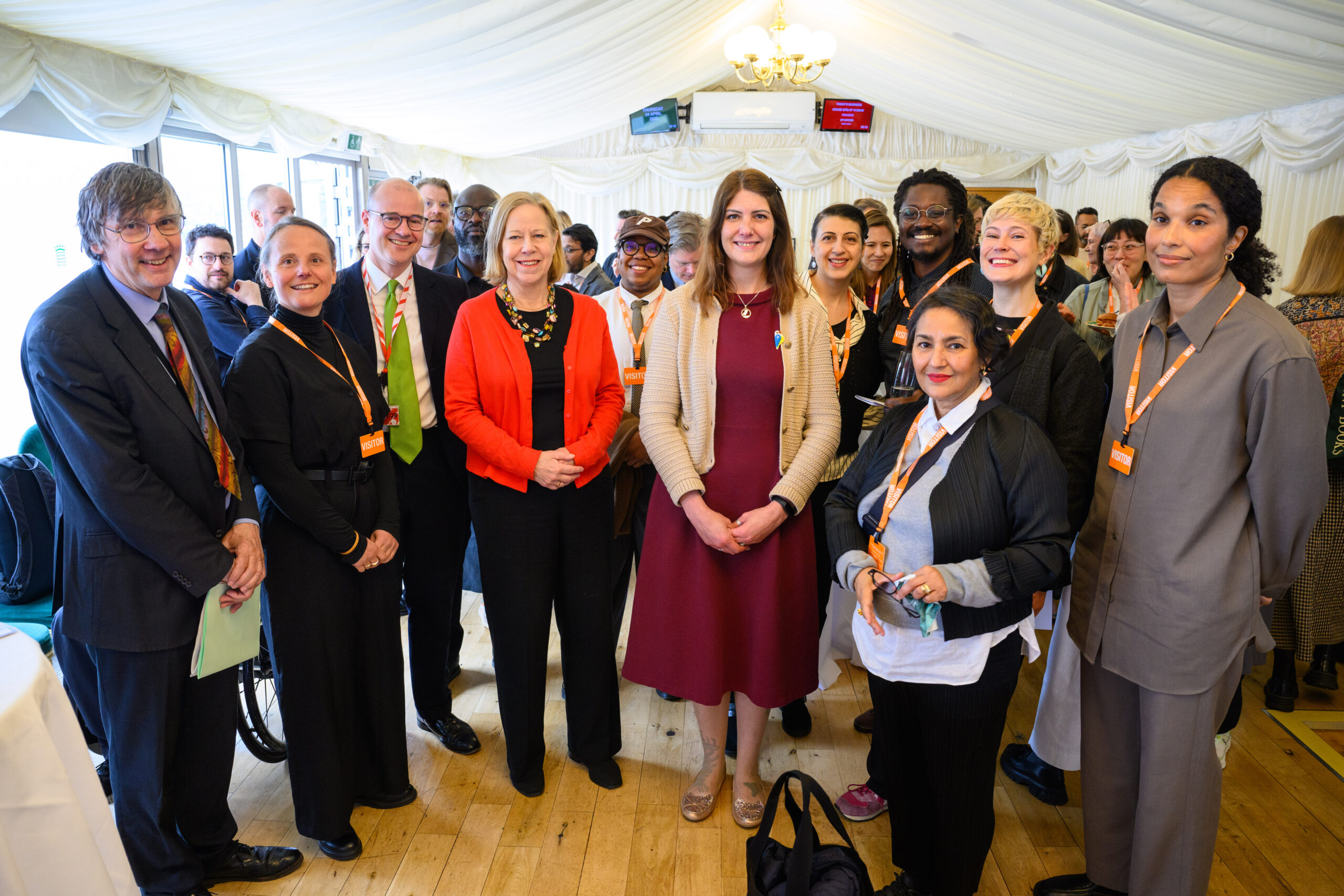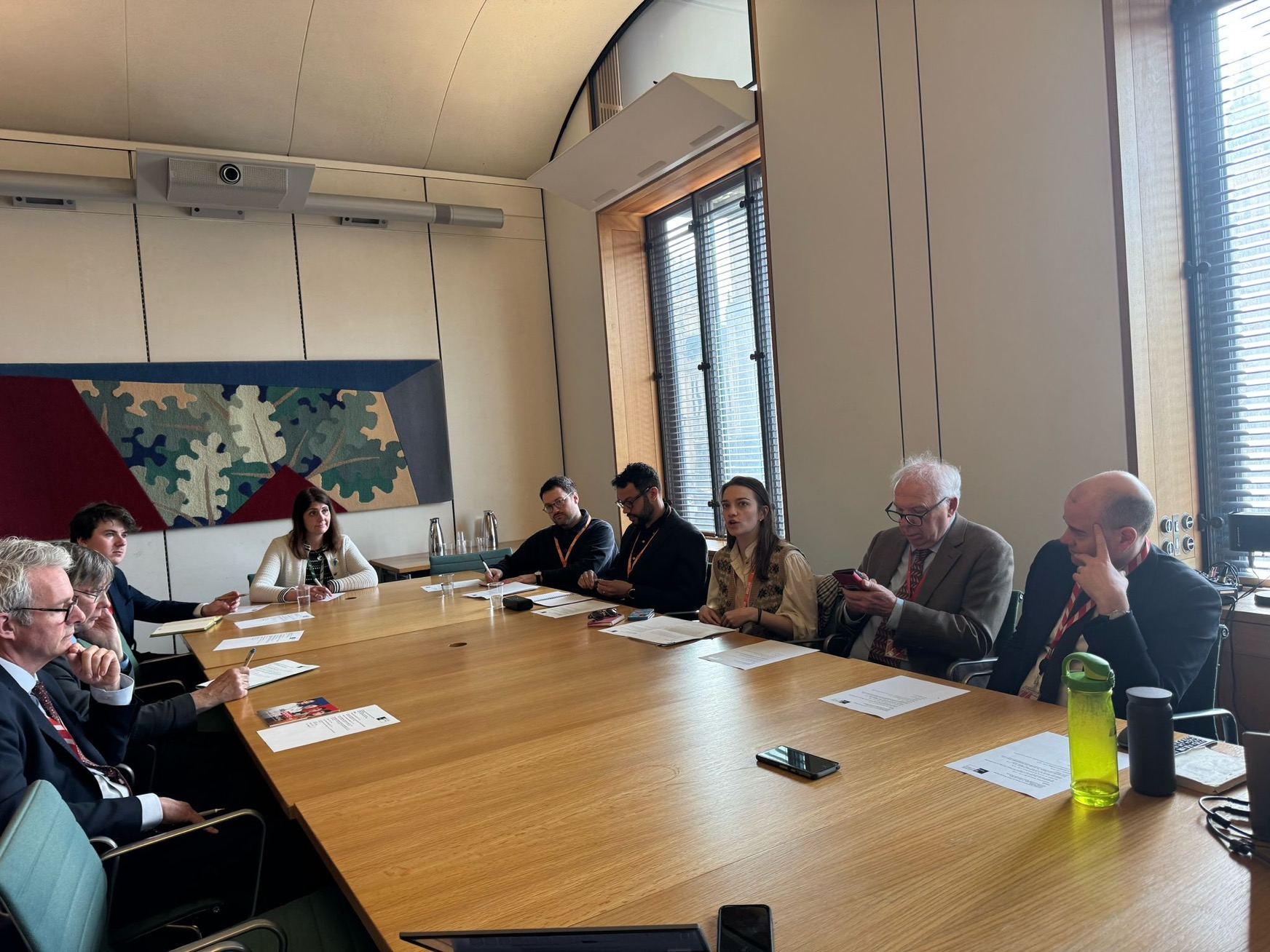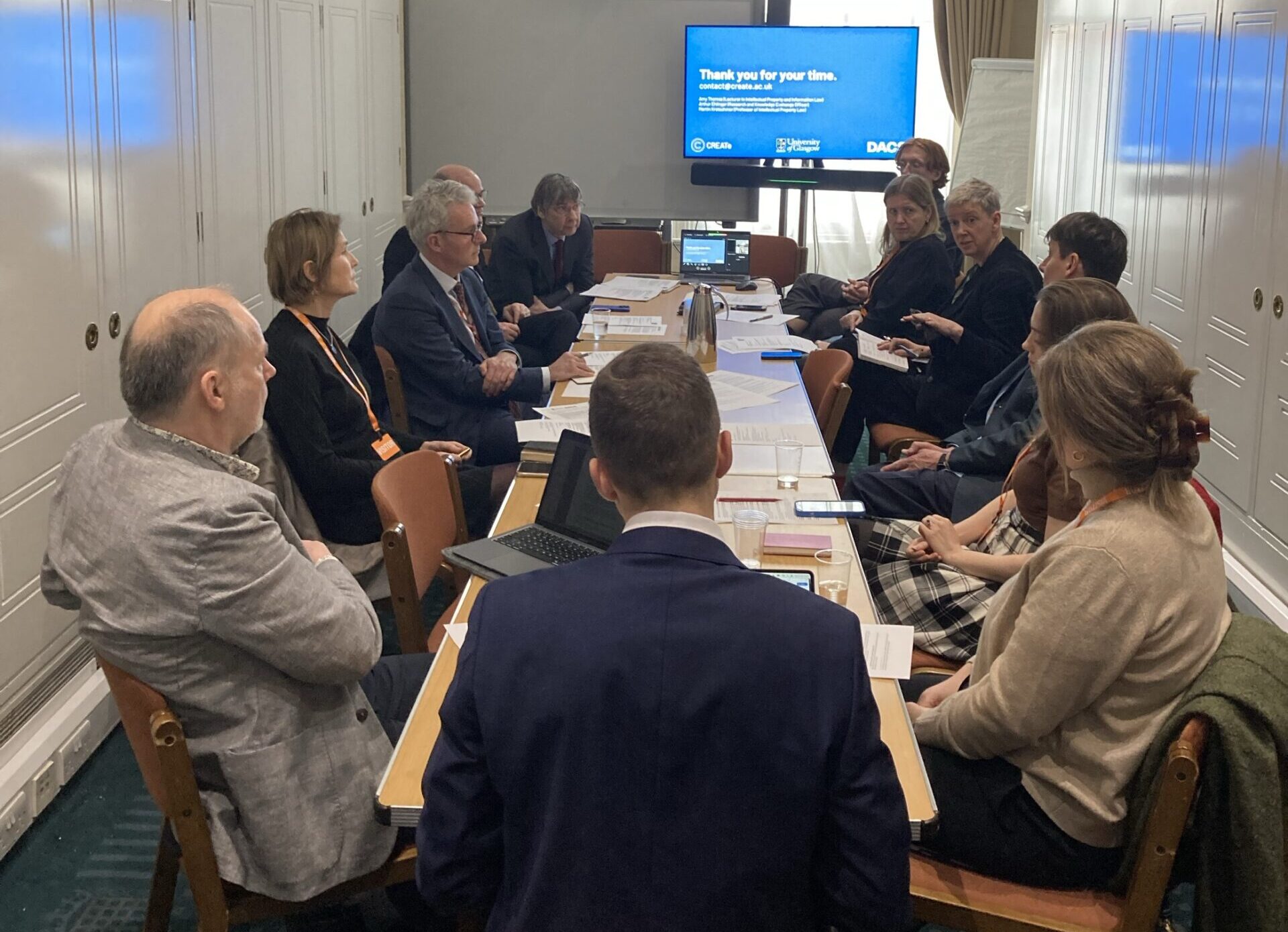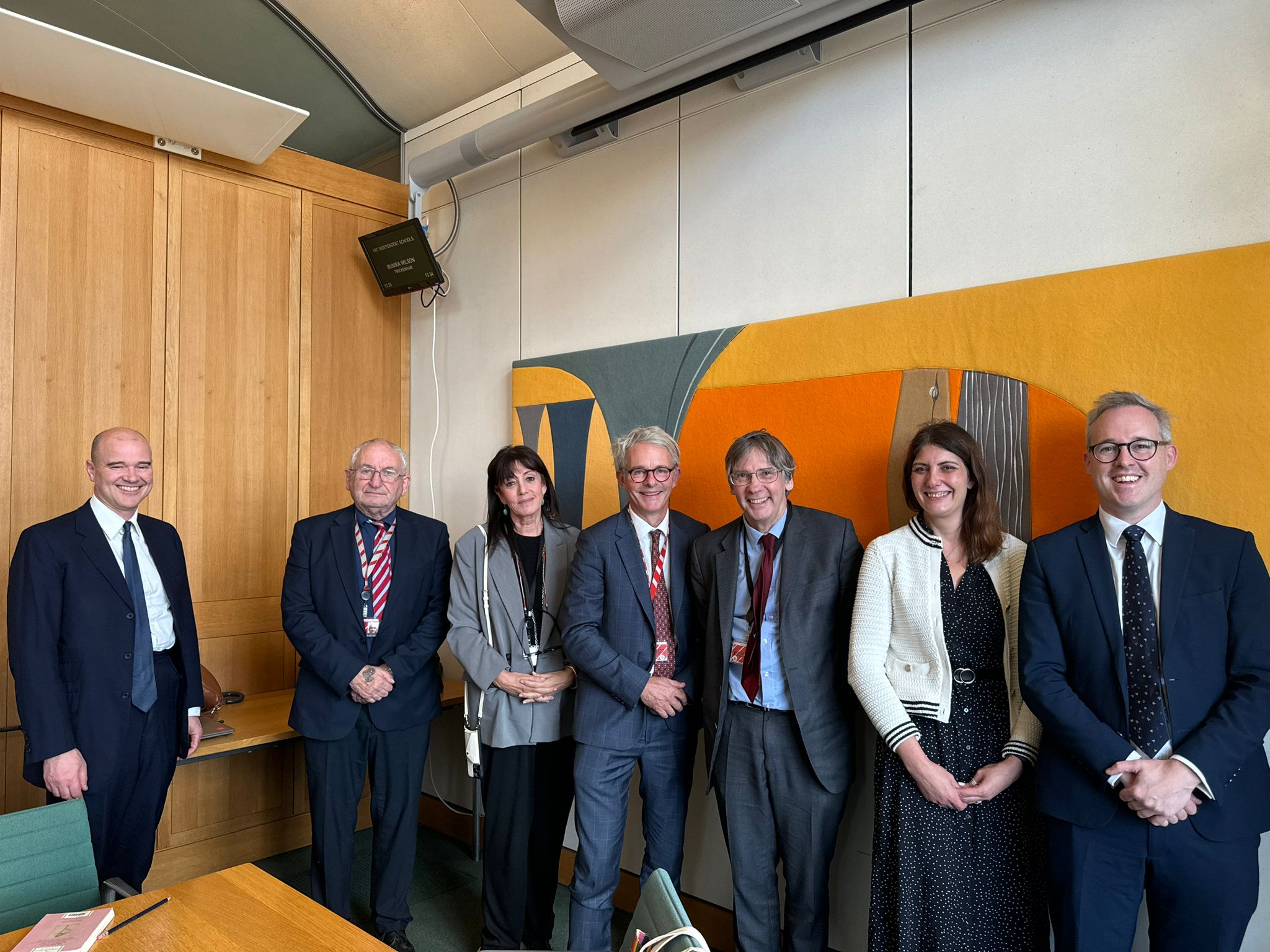APPG members and supporters pictured during the launch of ‘Framing the Future: The Case for Strengthening the Visual Arts Ecosystem’, at the House of Commons.
(L-R: the Earl of Clancarty, Paula Orrell, Director CVAN, Lord Freyberg, Ruth Cadbury MP, Artist Exodus Crooks, Cat Eccles MP, Artists Larry Achiampong, Sutapa Biswas and Charlotte Warne Thomas, and Eva Langret, Director of Frieze London.) Photo credit: Matt Crossick/DACS.
A major new report, Framing the Future: The Political Case for Strengthening the Visual Arts Ecosystem, has been launched at the House of Commons.
Backed by the APPG for Visual Arts & Artists, the report is published ahead of the UK Government’s multi-year Spending Review and sets out four key recommendations to safeguard the future of the UK’s visual arts and its artists, whilst highlighting the three ways in which the visual arts can support the government in delivering its core missions.
Commissioned by CVAN Contemporary Visual Arts Network and John Hansard Gallery, part of the University of Southampton, in collaboration with a-n The Artists Information Company, DACS and Plus Tate, this sector-wide report developed and written by Erksine Analysis puts forward the economic, cultural and social case for strategic investment in the visual arts.
In 2023, the UK visual arts sector exported £4.1 billion, more than the UK’s total exports to countries like Greece and Portugal. The UK is also home to 12 of the world’s 100 most visited museums and galleries, as well as two of the world’s top-ranked Art and Design universities: the Royal College of Art and University of the Arts London. Iconic institutions such as Turner Contemporary in Margate and V&A Dundee have played vital roles in local economic regeneration.
Despite these strengths, the sector is under strain. Exports are down £1.7 billion since 2018, and organisations and artists face mounting challenges that threaten stability and growth. These include the implications of trade restrictions post-Brexit, the challenges posed by emerging technologies like AI, limited support for artists and freelancers, and the increasingly precarious state of critical infrastructure such as studios and regional visual arts galleries across England.
Nevertheless, the UK remains a global powerhouse in the art market, second only to the United States and China, with 2022 sales reaching $10.9bn (£8.6bn). That economic success has been fuelled by a long history of painting, sculpture, drawing and printmaking, bolstered by museums, galleries, higher education institutions and—most importantly—individual artists. Some of the most successful British living artists include Damien Hirst, Tracey Emin, David Hockney, Peter Doig and Jenny Saville.
Published today, Framing the Future: The Political Case for Strengthening the Visual Arts Ecosystem outlines a comprehensive roadmap for how the UK Government can invest in and sustain the country’s visual arts sector – supporting the UK’s industrial strategy on trade and exports, and building on the sector’s £4.1 billion contribution in 2023.
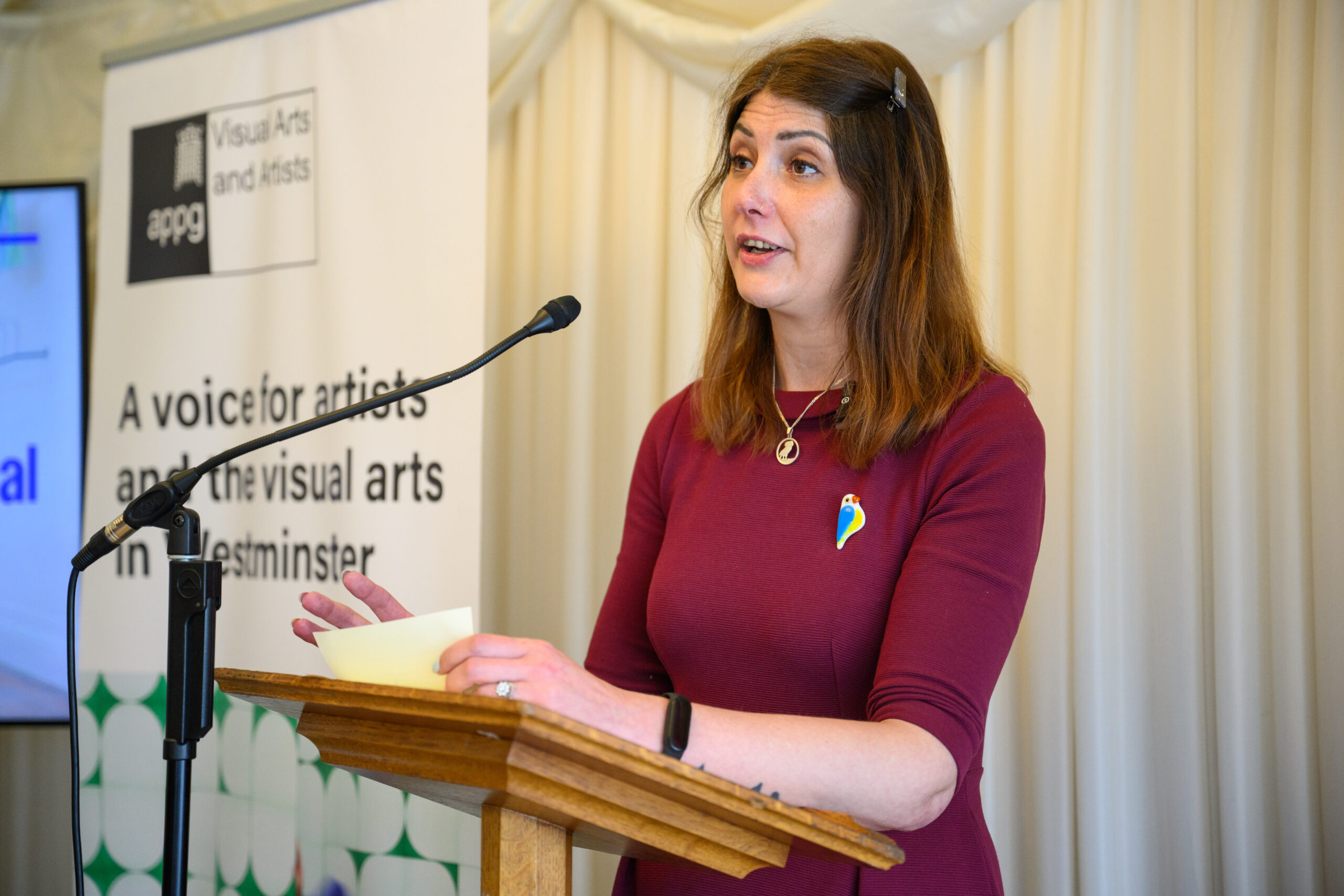
Key recommendations from the report for the UK Spending Review are:
- Establish a UK Cultural Investment Partnership Fund – A new centrally administered fund offering emergency support, business innovation funding, and matched capital investment.
- Create a £5 Million Grassroots Visual Arts Fund – Direct support for small galleries, studios and artist-led spaces, mirroring the successful Grassroots Music Fund.
- Expand Access to Creative Education In and Out of School – Invest £8.4 million annually to scale up the National Saturday Club network, providing free creative education to over 54,000 young people, particularly in underserved areas.
- Restore Specialist Subject Funding in Higher Education – Reverse 2021 cuts to secure the future of high-quality creative courses vital to the UK’s visual arts workforce.
